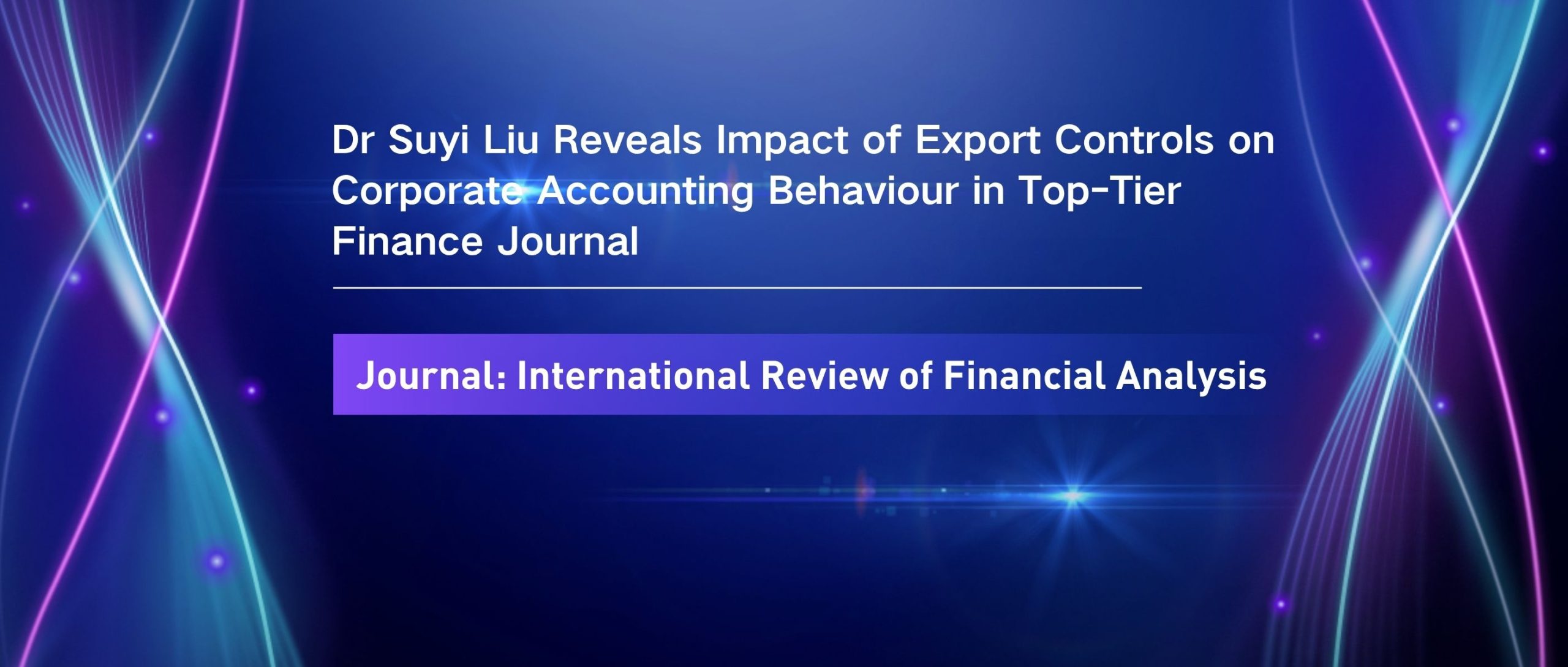16 Aug 2025
Dr Suyi Liu, Assistant Professor in the Department of Accounting at International Business School Suzhou (IBSS) at Xi’an Jiaotong-Liverpool University’s (XJTLU) , has co-authored research published in the premier journal International Review of Financial Analysis (Impact Factor: 9.8, ABDC A/ABS 3) titled "Export Control and Earnings Management: Evidence from China". The study provides first empirical evidence that U.S. export controls exacerbate opportunistic accounting practices among sanctioned Chinese firms—particularly those with weak governance—ultimately undermining long-term profitability and sales growth. This breakthrough offers critical insights for accounting regulation amidst global trade tensions.

Conventional wisdom focuses on supply chain disruptions from trade sanctions, whereas this research analyses 2014-2023 data to reveal That U.S. export controls exacerbate the financial distress of sanctioned firms, increase cash flow volatility, and weaken internal controls, thereby leading to more opportunistic accounting behaviors. Specifically, compared with non-sanctioned firms, sanctioned firms face a 3.5% higher bankruptcy risk, 0.4% greater cash flow volatility, and approximately a 5.1% higher probability of internal control weaknesses. Consequently, sanctioned firms tend to embellish financial statements through accounting manipulations, with an average of 1.5% higher discretionary accruals.
Dr Suyi Liu noted: “When firms are subjected to sanctions, those with weak internal and external monitoring are more likely to engage in earnings management. For sanctioned firms, in the long run, earnings manipulation is associated with a greater decline in return on assets (ROA), with an additional reduction of about 11%, and is also linked to a significant drop in sales growth”.
The study delivers triple implications: Regulators should pay attention to the upward earnings management practices of sanctioned firms, consider the managerial opportunism arising under trade sanctions, and establish performance evaluation systems that support long-term corporate development. Especially in technology firms with severe information asymmetry, auditors, analysts, and institutional investors should play a stronger supervisory role. Sanctioned firms, in turn, should be wary of the negative impact of accounting opportunism on long-term profitability to effectively navigate the growing techno-geopolitical uncertainty. Dr Liu’s team is extending this work to examine how export controls affect corporate financing decisions and labour investment efficiency.
Author Profile
Dr Suyi Liu serves as Assistant Professor in the Department of Accounting at IBSS, specialising in bank accounting disclosure regulation and auditors’ professional judgment. Her seminal work on the 2023 Banking Crisis and economic consequences of export controls appears in ABS 3-rated journals including International Review of Financial Analysis and Accounting Forum, with presentations at AAA conferences. As an ACCA member, she currently focus on risk disclosure in banking sector and seeks research assistants with financial data analytics expertise.
Journal Significance
International Review of Financial Analysis is a JCR Q1 flagship journal dedicated to advancing financial research across cultural, institutional and regulatory contexts. Renowned for transcending US-centric paradigms, it prioritises global diversity through three pillars: comparative regulatory analysis, historical-institutional examinations, and methodological innovation. The editorial board asserts: "We provide academic public goods for solving international financial governance challenges."
16 Aug 2025







